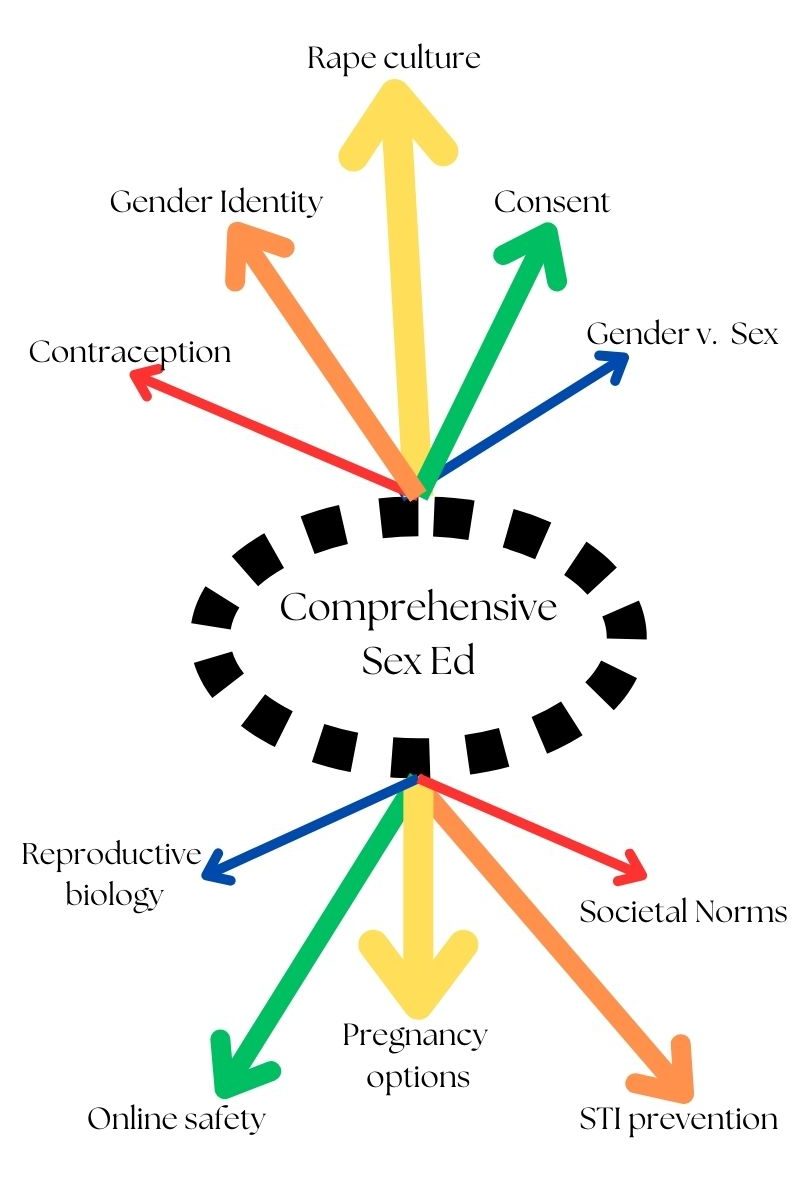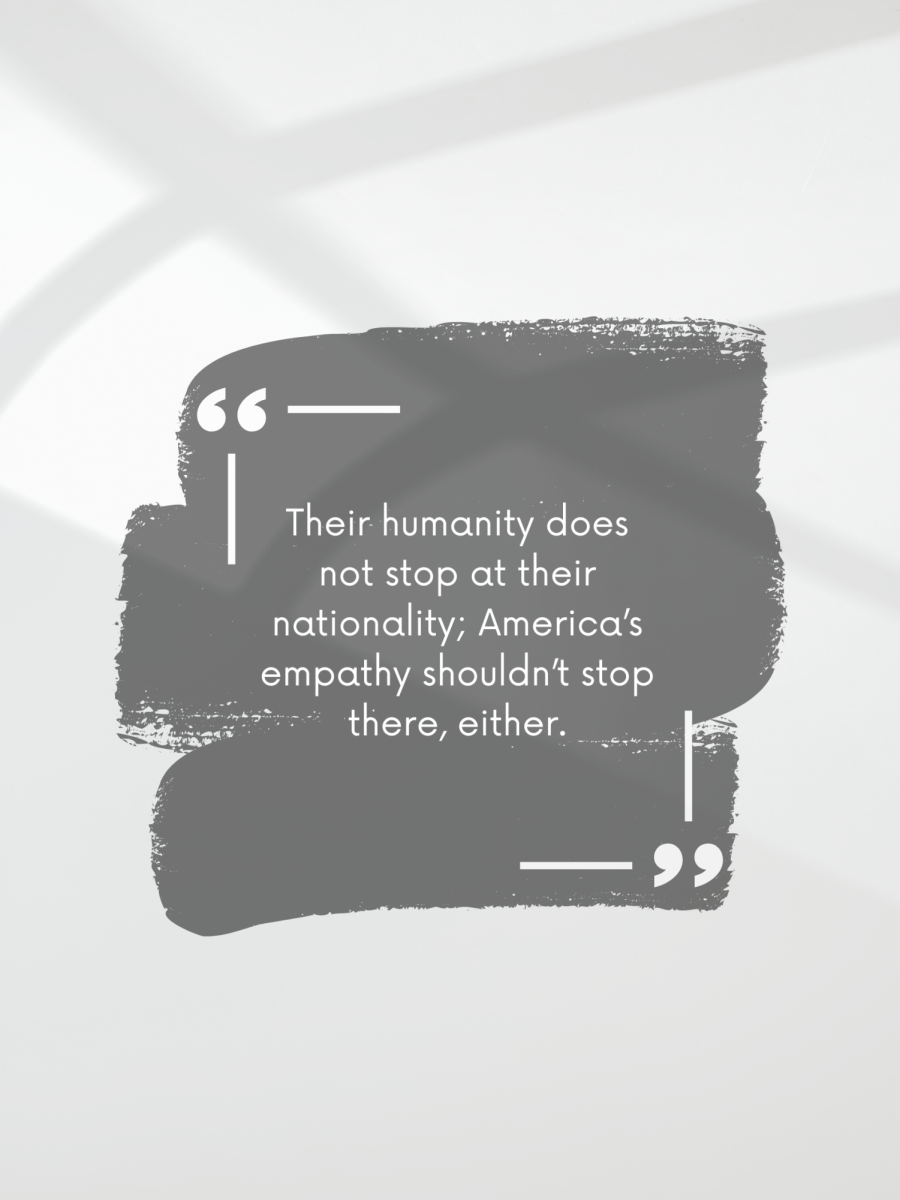The State of Idaho does not mandate sex education in public schools, and the only currently accepted curriculum in Idaho is abstinence-based. Despite trying to drive the point into students that sex is dangerous and unacceptable outside of marriage, approximately 15 out of every 1,000 teen girls in Idaho will become pregnant and have a baby. This number (reported from the World Population Review) does not even account for the girls who become pregnant and miscarry or terminate their pregnancy. According to the World Population Review, Idaho falls in about the middle of teen birth rates, the highest being Mississippi with 30 per 1,000; and Massachusetts at the lowest with six per 1,000. What makes these states so different?
The states with the highest rates of teen birth — from Idaho to Mississippi– are almost all majority conservative religious, and they lack either comprehensive sex ed or sex education entirely. This makes sense because of the typically traditional nature of those who practice religion or identify as conservative.
Idaho is no exception. In this state, 67% of the population is conservative religious, according to the Pew Research Center. Abstinence — refraining from sex until marriage — is the most widely accepted teaching here, as it is in almost every other state that lands at or above Idaho’s birth rate.
Abstinence-based education serves a student until they decide to have premarital sex. Then suddenly, the entire curriculum is rendered null and void, other than lessons on sexually transmitted infections. In addition, because sexual education laws in Idaho are written so vaguely, teaching about contraception is not required. In fact, some of Idaho’s laws discourage and outlaw such teaching.
Title 18, Chapter 6, Section 18-603 of Idaho law reads:
“Every person, except licensed physicians of this state and those licensed or registered health care providers hereinafter referred to acting under their direct supervision who wilfully publishes any notice or advertisement of any medicine or means for producing or facilitating a miscarriage or abortion, or for the prevention of conception, or who offers his services by any notice, advertisement, or otherwise to assist in the accomplishment of any such purpose, is guilty of a felony.”
[Formatting added by the reporter.]
To “prevent conception” means to take birth control. The Merriam-Webster dictionary defines “conception” as “the act of conceiving a child or a child being conceived.” The example sentence provided with the definition is “an unfertilized egg before conception.”
When this law was enacted in 2023, public universities, including Boise State and the University of Idaho, issued statements to their educators advising against even mentioning abortion procedures and emergency contraception. One university even banned teachers from recommending or speaking about birth control, according to the Associated Press (AP).
Too often, sexual education is characterized as teaching kids about the act of having sex. But evidently, the act is not the only important part of a physical relationship. A multitude of factors contribute to sexuality, and sexuality is what leads to sex. The components of comprehensive sex education are all part of one universal goal: encouraging teenagers to be knowledgeable about sexuality so they can utilize the best tactics for themselves to stay healthy and safe.
Through comprehensive sexual education — defined by the American Academy of Pediatrics as “developmentally appropriate, evidence-based education” — students are exposed to the complex aspects of sex that fall in the grey area between having sex and not. Abstinence, though it is not the basis of the curriculum, is still taught and encouraged as an option that teenagers can pursue. But options like contraceptives and protection during sex are taught just as extensively.
In addition, comprehensive sex ed opens avenues for teens to learn about complex topics like sexual exploitation and abuse, plus reproductive coercion and responsibility. They learn how things like bullying, gender identity and sexuality, societal expectations, and so many other layers work together to create the image of sexuality. They learn how to deconstruct the beliefs they’ve been taught so they can understand both themselves and the world around them.
Teenagers will not continue to have sex because they are “uneducated.” They will continue having sex because they are human. “Strongly encouraging” abstinence holds no weight to that of good education. Teenagers could be offered every safeguard available to them. They could be taught thoroughly, and those teachings would be supported with multitudes of scientific evidence. And yet, in Idaho they are denied that opportunity because of the taboo sex holds in society. Sex is the only reason we’ve made it this far — the only reason humanity still exists. Young adults deserve to have comprehensive sex ed.







